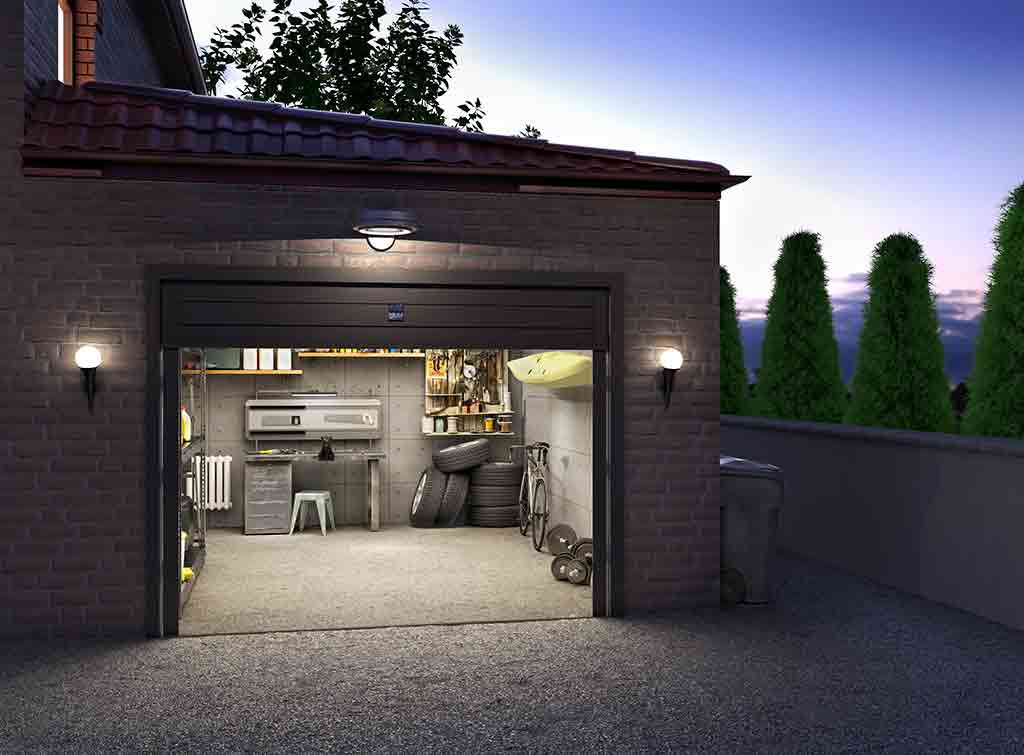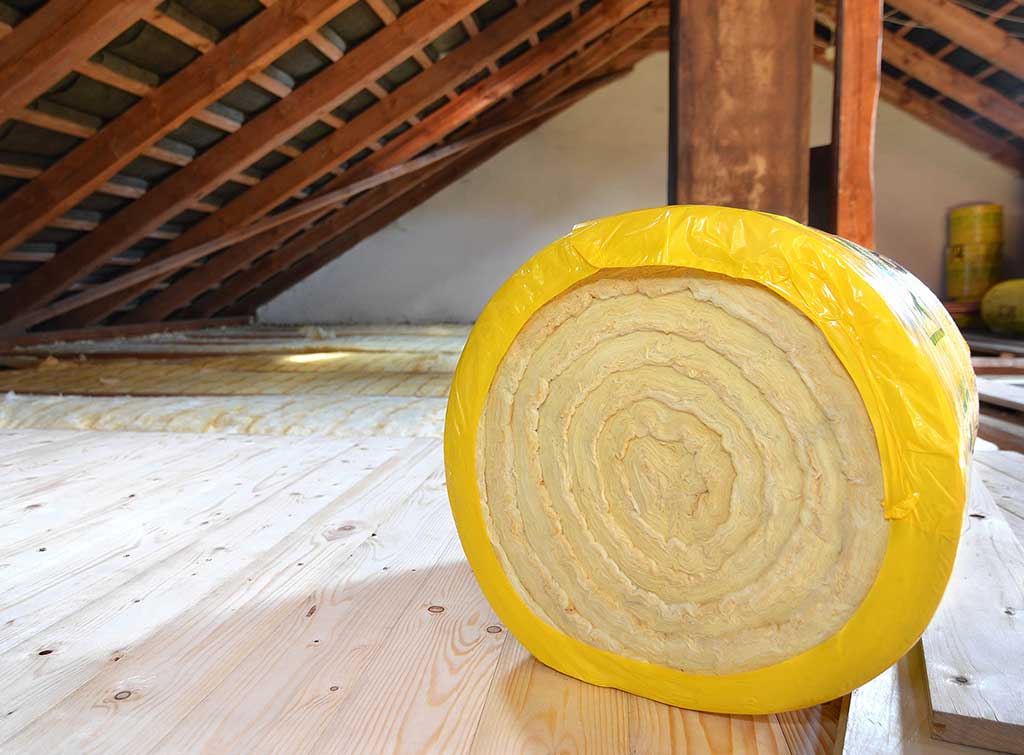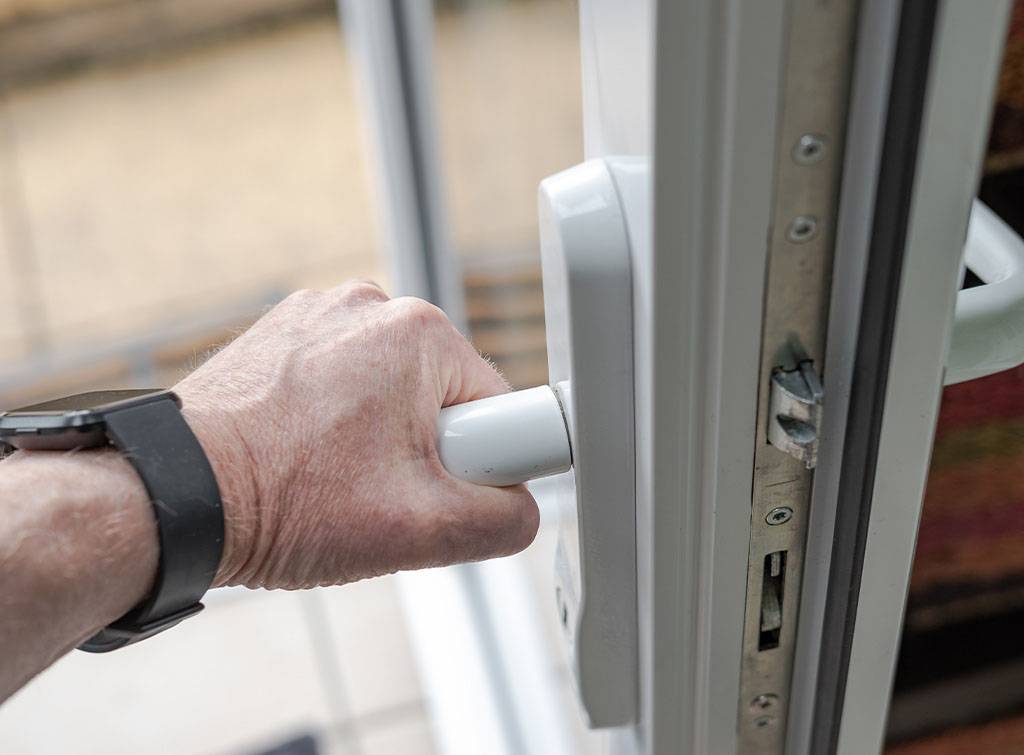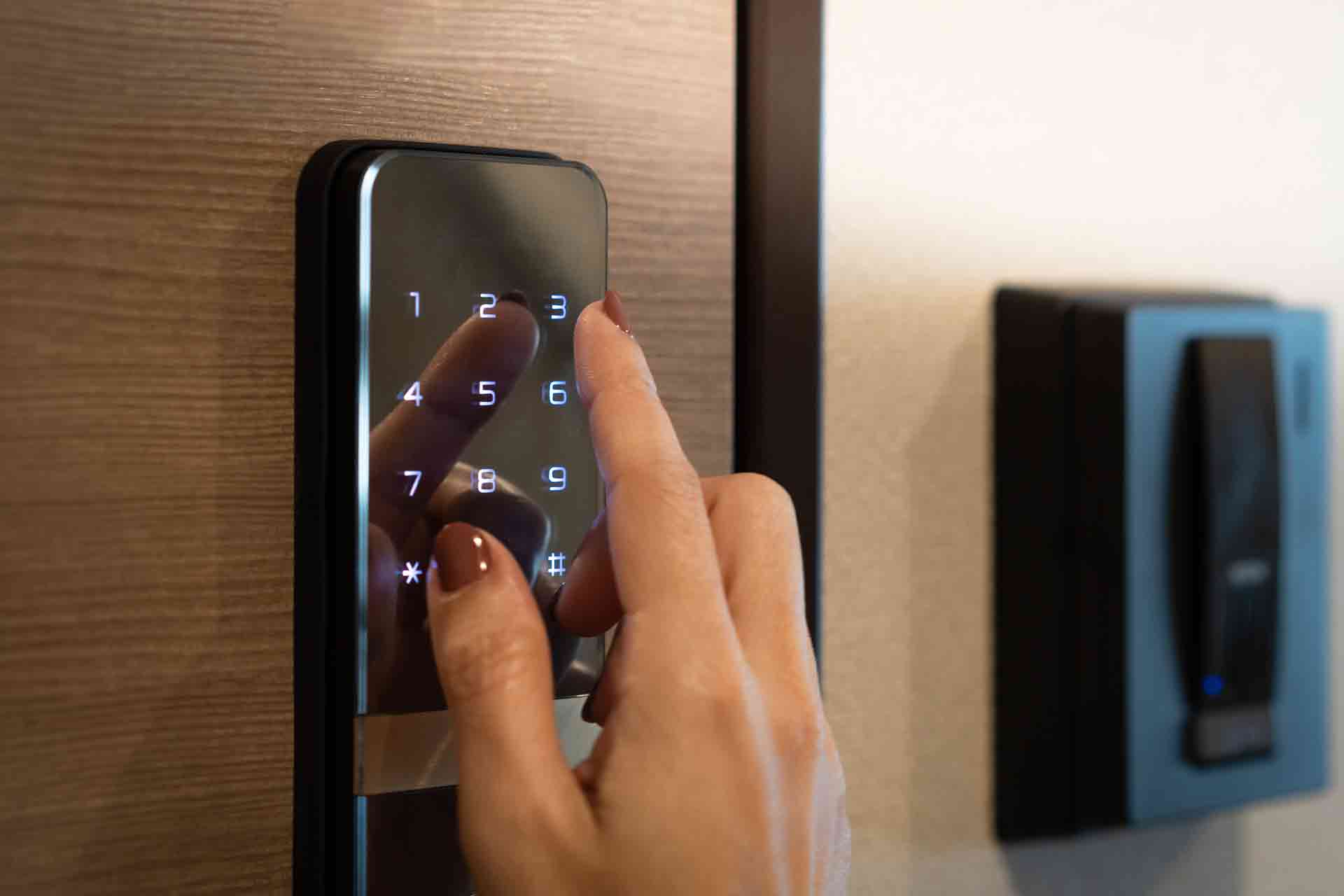Blog>Planning Guides>A complete guide to changing your locks
Last updated: 10 July 2024
A complete guide to changing your locks
Are you changing your locks? Use our planning guide to decide what type of lock is right for your door, security and budget.
Have you recently moved or experienced a break-in? Or perhaps you're changing your locks because your existing locks have seen better days. Either way, making sure you have reliable, working locks is rule 101 of home safety.
In this guide, we walk you through the process of changing locks, so you can decide what type of lock is right for your home, security needs and budget.
We also explore how to find an experienced locksmith.
See the tradespeople we've checked and recommend for your job
Benefits of changing locks
There are few things more important than keeping your home's valuables and loved ones safe. So, whether your lock has been compromised, or you're simply fed up with wrestling with an existing sticking lock, changing your locks is always a worthwhile investment.
The benefits include:
Security – Peace of mind that your home's valuables and your loved ones are safe
Functionality – Upgrade your locks to the latest, most secure mechanisms
Look – Alongside other matching door furniture, a new lock can help spruce up a tired-looking front door
Cost of changing your locks
The cost of changing your locks all depends on the situation at hand.
If it's the dead of night and you've experienced a burglary or lost your keys, an average out-of-hours locksmith rate can be anywhere from £75 per hour to £200 per hour. This includes work done at weekends and on bank holidays.
However, for normal business hours, a** professional locksmith** normally charges around £65 per hour.
Top tip – Remember, you'll need to factor in the cost of the lock itself alongside the callout cost. Cylinder locks work out cheaper than mortice or smart locks as they are quicker to install. More on that below…
You can find out more about locksmith prices in our extensive cost guide too.
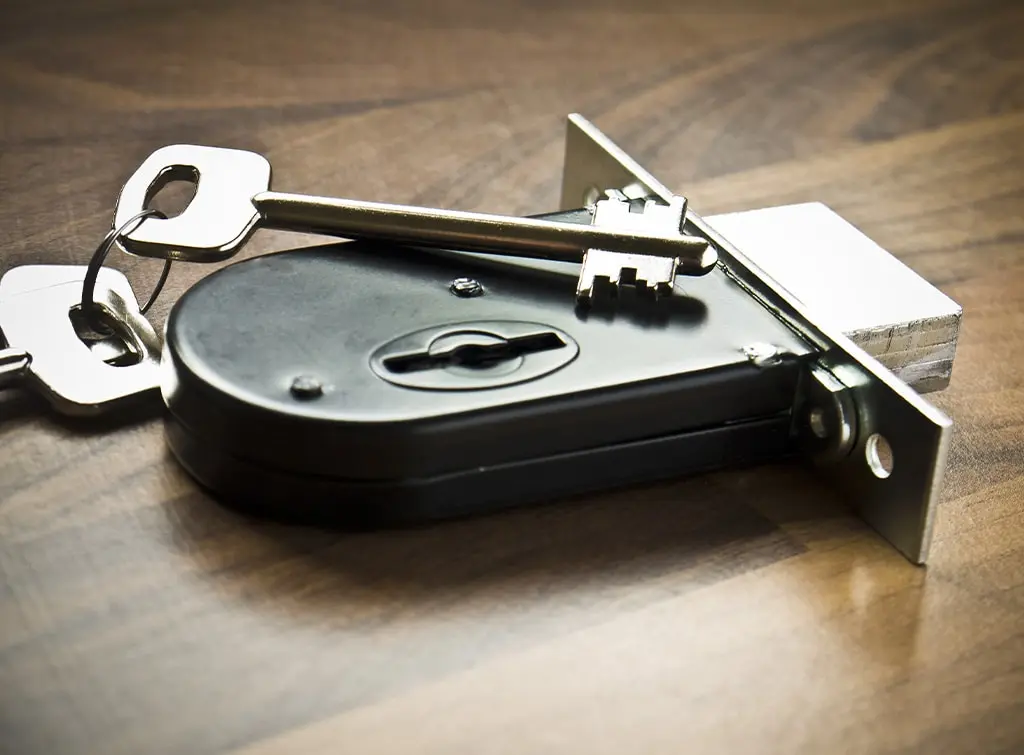
Type of locks
What type of lock you choose depends on whether you have a timber or a UPVC door.
A **professional locksmith **will recommend a lock best suited to your door, security needs and budget. However, it's handy to know in advance your options – particularly as there are so many varieties to choose from. Let's run through the most popular choices:
Mortice locks
Mortice locks are commonly used for external timber doors. They work by fitting into a pocket at the edge of the door, with a bolt locking into the door frame.
Pros:
You can choose from varying sizes, from 2 to 7 levers depending on the level of security you want. We recommend a 5-lever lock for external doors
It's possible to lock the door from the inside as well as outside
They sit flush with the door, so have a smart, streamlined look
They are difficult to pick
Cons:
They can be tricky to install as a locksmith will need to carve out a pocket in your door frame, if there isn't an existing one
Mortice locks are only compatible with doors that are 35mm or thicker
Top tip – For added security, ask your locksmith to fit a secondary lock known as a night latch. They are fitted alongside a mortice lock as an extra precaution.
Cylinder locks
Single-cylinder locks can be secured from the outside by a key and from the inside by a thumb turn. Some homeowners choose single-cylinder doors as they are easier to open from the inside in the event of an emergency.
Meanwhile, double cylinders lock with a key from both sides making them the most secure option.
There is also a lockable thumb-turn style which does not require a key, but this is only suitable for internal doors.
Pros:
Cylinder locks are cheaper to install and easier to replace compared to mortice locks
The locks come in a variety of designs to match your other door furniture
Cons:
Single-cylinder locks are easy for small children to open from the inside, which may pose a danger
Euro Cylinder locks
Similar in function to the cylinder locks above, this style of lock is mainly used for UPVC and composite doors.
Pros:
Available in various sizes
Easy to fit, making installation costs lower
Straight-forward to replace as only the cylinder needs to be replaced rather than the whole lock
Cons:
Some basic Euro cylinder locks are susceptible to 'lock snapping' – a technique used by intruders to manipulate the lock mechanism and gain entry
Top tip – Look out for Euro cylinder locks with anti-snap technology for maximum security. Though more costly than basic models, it's a worthwhile investment for the added peace of mind.
Smart locks
Keyless entry and a streamlined design make smart locks a popular choice. Using electromechanical locks to control entry to your home, smart locks connect to your home’s WiFi. They are usually operated using a touchscreen with a PIN code entry, a mobile app, or an electronic key fob.
Pros:
Convenience – your entire security system is just a thumbprint away and can be controlled remotely
Advanced security
Sleek, modern design
Keyless entry – you'll never have to worry about lost keys again!
Cons:
More expensive to install compared to traditional locks – read up on the prices involved in our smart lock cost guide
With codes to remember and wi-fi access required, smart locks won't suit any technophobes out there
Still not sure what type of lock you need? Our guide to exterior door lock types can help.
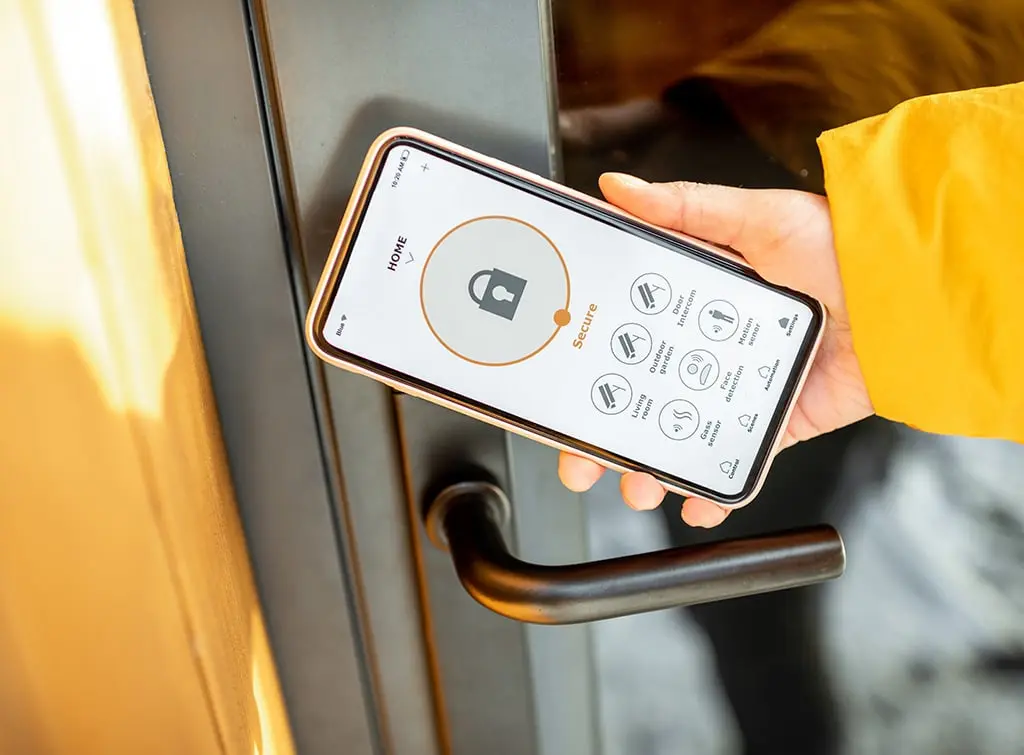
Can I change my locks myself?
If you're a confident DIY-er, nothing is stopping you from changing your locks from a legal standpoint. Many locks (particularly cylinder locks) are DIY-friendly.
All that said, if you don't fit your doors correctly, you could put your loved ones and valuables at risk. It could also compromise your home insurance.
That's why we always recommend hiring a professional locksmith. But how do you go about hiring a professional locksmith? That's up next.
How to hire a professional locksmith
For your peace of mind, you'll want to hire an experienced and reliable locksmith.
Wondering what you should be looking out for? Just follow these four simple steps:
Use a professional directory
Speed up the hiring process by searching with a professional directory (like Checkatrade!)
We're so confident in the quality of the trades on Checkatrade that if you book through us, we guarantee their work up to £1,000. Guaranteed for 12 months – Eligibility criteria and T&Cs apply.
Contact or pay a trade through Checkatrade and you’re covered by our 12-month guarantee of up to £1,000*

Read online reviews
Always check to see what other homeowners have to say about a locksmith before hiring them.
At Checkatrade, we check all online reviews to ensure they're from real people and that trades meet our high standards.

On Checkatrade, you'll only find trades who meet our high standards and pass up to 12 checks.
Check for accreditations
While a locksmith doesn't need a license to work, we recommend hiring someone who is a member of the Master Locksmiths Association (MLA). That way, you can be sure their work is going to be of a high standard.
Compare quotes
It's always wise to get at least three quotes from reputable professionals to make sure you're not overpaying for the work**.**
Ready to find an experienced locksmith near you? Simply add your postcode to the box below.
See the tradespeople we've checked and recommend for your job
More Planning Guides
See the tradespeople we've checked and recommend for your job

